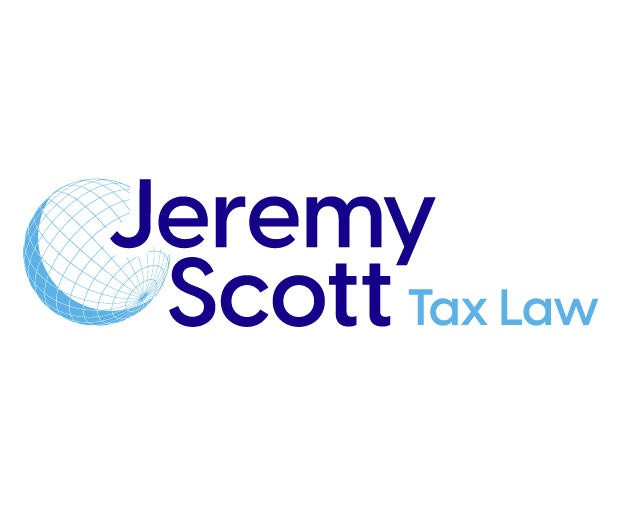From City Hall to the C-Suite
Jeremy's journey into the realm of tax was anything but conventional. After obtaining a business degree and a law degree from the University of New Brunswick, he began his career in municipal government. However, he soon discovered that his true passion lay in tax law. This realization prompted him to join a mid-sized accounting firm, where he immersed himself in indirect taxes-navigating the complexities of GST, HST, and provincial sales taxes.
"Most individuals opt for corporate or income tax," Jeremy chuckles. "But I found my interest piqued by sales and commodity taxes. We've always grappled with our identity-are we sales tax experts? Commodity tax specialists? Indirect tax professionals? I prefer to simply say: sales tax."
This specialization proved to be advantageous. Jeremy's knowledge and skills earned him a prominent role at Sobeys, one of Canada's largest grocery retailers, where he led the indirect tax department and later oversaw the entire tax function for nearly a decade. In this capacity, he was responsible for compliance, risk management, and significant acquisitions-including the $6 billion acquisition of Canada Safeway-skillfully balancing technical accuracy with practical business considerations.
The View from Both Sides of the Desk
After spending a decade in-house, Jeremy transitioned back to consulting with a unique perspective-having been both the advisor and the client. He possesses a deep understanding of the technical aspects of tax law, as well as the practical implications of how tax policy is implemented within large organizations.
"Writing a technically accurate memo is one thing," he explains. "Ensuring that policy is executed across accounting, operations, and logistics teams is another. Tax does not operate in isolation."
How Canada's Sales Tax System Really Works
So, what distinguishes sales tax in Canada?
To begin with, Canada has a dual tax structure that encompasses both national and provincial levels. The federal GST (Goods and Services Tax) is applied nationwide at a rate of 5%. Certain provinces, such as Ontario and Nova Scotia, have harmonized their provincial sales tax with the GST, resulting in the HST, a unified VAT (value-added tax) that can reach up to 15%.
Conversely, provinces like Quebec maintain their own tax systems. Quebec's QST is closely aligned with the GST but is administered separately. Meanwhile, British Columbia, Manitoba, and Saskatchewan each have their own independent PSTs (Provincial Sales Taxes) that function similarly to U.S. state sales taxes.
"Each province has its own peculiarities," Jeremy remarks. "When operating across provincial borders, especially in those with their own PSTs, you must relearn the regulations every time."
The "Netflix Tax" and the Digital Shift
In recent years, Canada has implemented what is colloquially referred to as the "Netflix tax"-a simplified registration framework for non-resident digital service providers, including streaming platforms, e-commerce vendors, or SaaS companies that cater to Canadian consumers without having a physical presence.
"We transitioned from asking, 'Are you conducting business in Canada?' to 'Are you making digital sales to Canadian consumers?" Jeremy clarifies.
If a company does not have a physical presence in Canada but generates approximately $30,000 in annual sales to Canadian consumers, it may be required to register and collect GST, HST, or the provincial equivalent.
The Import Puzzle: Tax at the Border
One of the most frequent surprises for businesses operating in Canada is the GST applied on imports.
When goods enter the country, a 5% GST is collected by the Canada Border Services Agency (CBSA). Many businesses overlook this detail, often unaware that it is a recoverable tax, meaning it can be claimed back later.
"I've encountered numerous clients who do not even realize they have paid GST at the border," Jeremy states. "It's often hidden in their import documentation or broker fees. However, it is money they can frequently recover."
Structuring Smart - and Staying Out of Trouble
For non-resident businesses, becoming entangled in Canada's tax framework is not always unavoidable. With the right transaction structuring, organizations can sometimes reduce their tax exposure.
"You can design your transactions to occur outside of Canada," he notes. "In such cases, the Canadian customer becomes the importer of record and is responsible for all associated taxes. However, this requires careful planning."
Why Compliance Starts with Communication
When discussing goods being delayed at the border, Jeremy chuckled-not because it was amusing, but because it is often preventable. The primary culprit? Poor paperwork.
Incorrect HS codes, incomplete declarations, or mismatched importer information typically lead to most border delays. "It's not always a tax-related issue," he explains. "Sometimes it's simply customs. Regardless, improved coordination among logistics, tax, and operations can avert many headaches."
Bringing It All Together
Navigating Canada's intricate sales tax landscape can be challenging-but it is not insurmountable. Businesses that invest time in understanding the interplay between GST, HST, and PST systems can discover efficiencies and mitigate unnecessary risks.
"Whether you are a local enterprise or an international entity, the crucial factor is aligning your tax strategy with your business objectives," Jeremy asserts. "When you view tax through that perspective, it shifts from being merely about compliance to being about smart strategy."
In conclusion, navigating Canada's complex sales tax system can be a challenging endeavor for businesses. However, with the right knowledge and resources, companies can successfully manage their sales tax compliance and minimize the risk of tax audits. Tax lawyer Jeremy Scott's insights serve as a valuable reminder of the importance of understanding sales tax regulations, maintaining accurate records, and seeking professional guidance when needed. By taking these steps, businesses can ensure they remain compliant and avoid the pitfalls that often accompany sales tax obligations in Canada.
To learn more about aligning your tax strategies with business growth, visit https://jeremyscott.ca/



